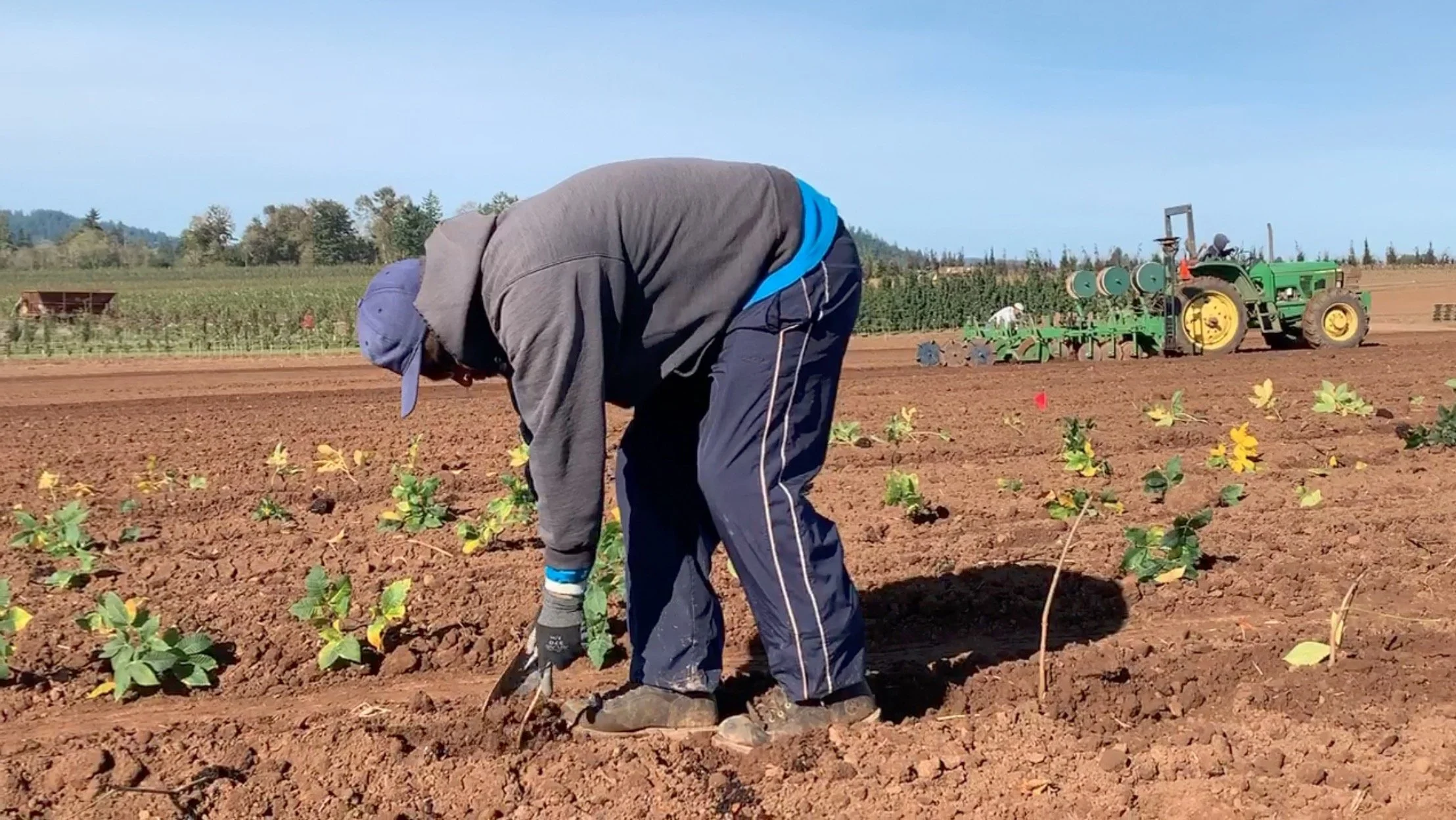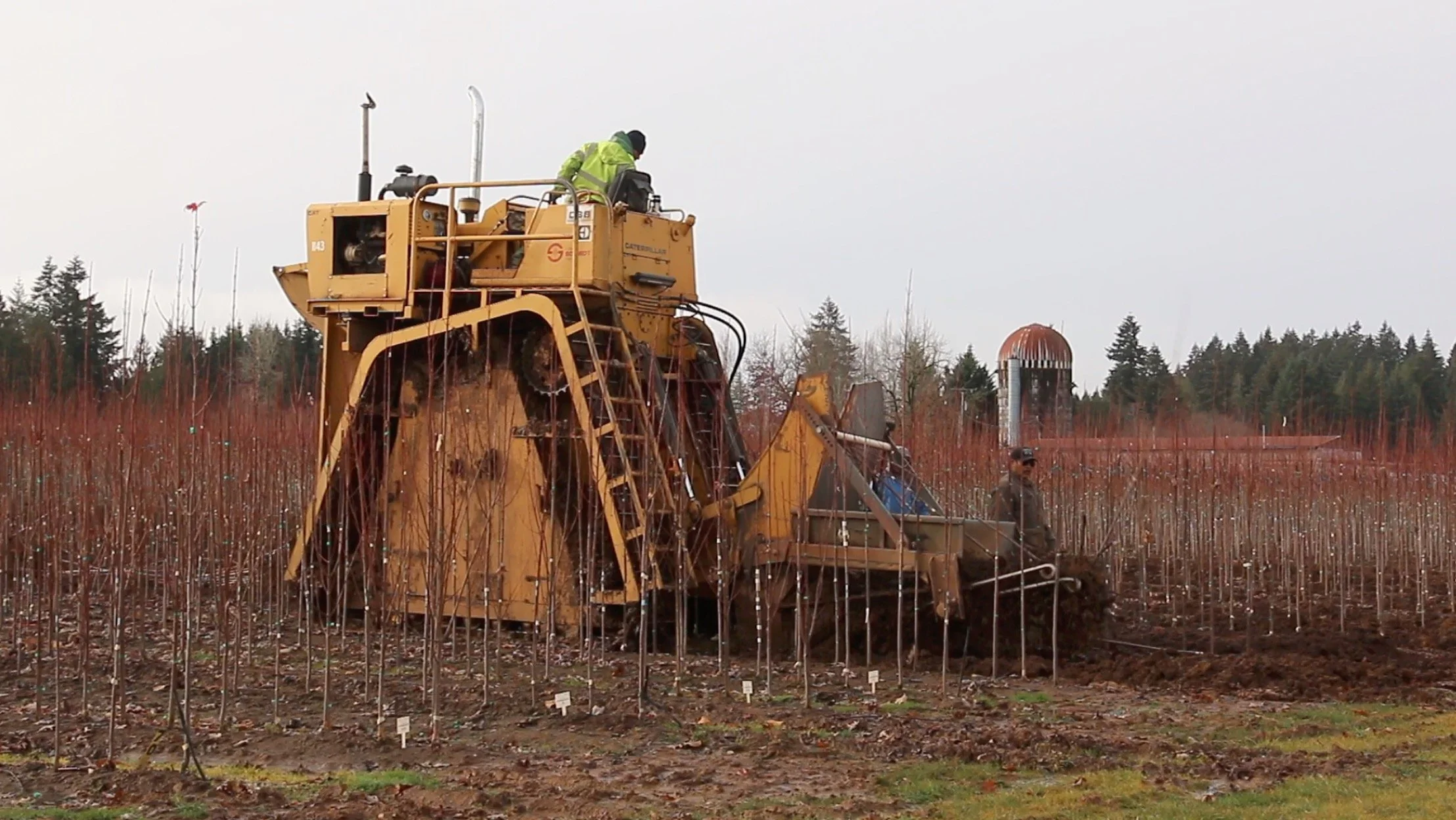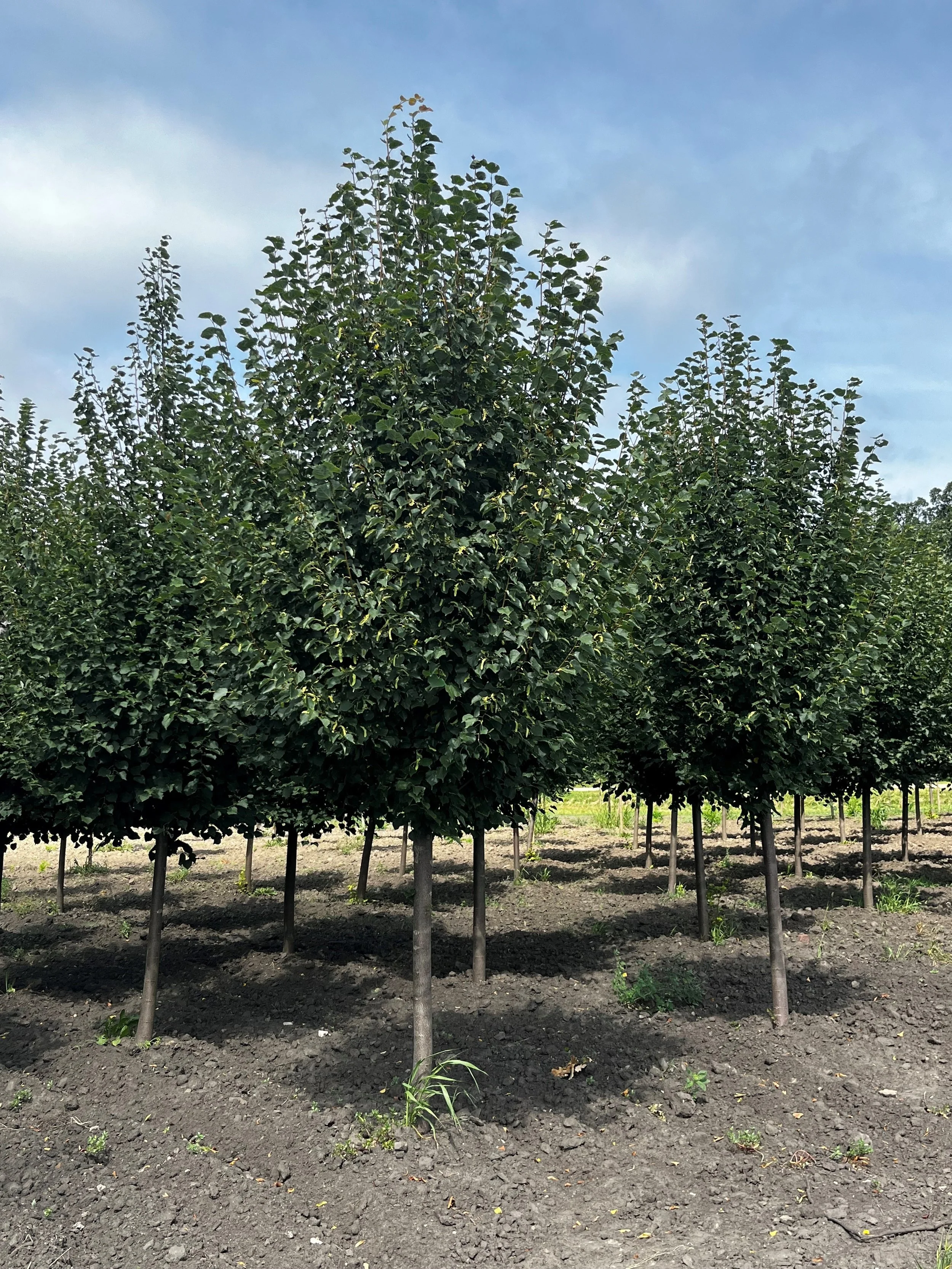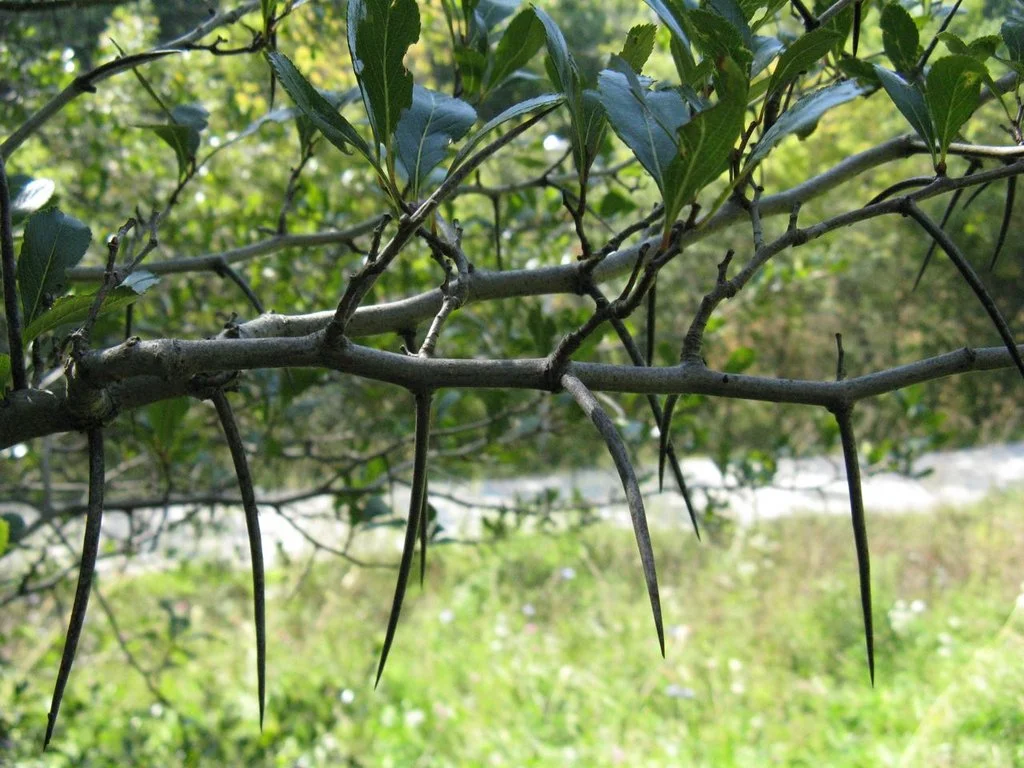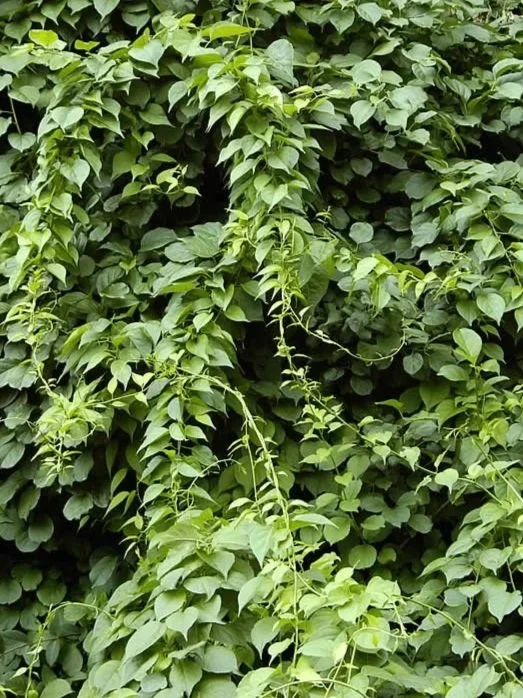It All Starts With Liners
Planting rooted seedlings in the field (Photo Credit: J. Frank Schmidt)
The Vital Role of Liners in the Nursery Industry
In the world of nursery production, the process of growing plants starts long before they reach the retail market. One essential aspect of the nursery industry is the production of liners, which are young plants propagated and cultivated specifically for further growth and development. In this blog post, we will explore the importance of liners in the nursery industry and take a closer look at a leading liner provider, J. Frank Schmidt the renowned tree nursery based in Oregon.
What Are Liners?
Liners are young plants that serve as the foundation for future growth. They are typically propagated through various methods, such as seed sowing, cuttings, or tissue culture. Many liners are cultivated in controlled environments, such as greenhouses or specialized growing facilities, to ensure optimal conditions for healthy root and shoot development. These young plants are then sold to growers for further cultivation.
The Role of Liners in Nursery Production:
Liners are a crucial component of the nursery industry, serving several important purposes:
Cost-Effective Production: By starting with liners, growers can achieve cost savings compared to growing plants from seeds or cuttings in-house. Liners provide a head start, allowing growers to produce a larger quantity of plants within a shorter timeframe.
Consistent Quality: Many liners begin under controlled conditions, ensuring uniformity and consistent quality among the plants. This enables growers to provide their customers with reliable and predictable plant material.
Variety Expansion: Liners allow growers to introduce new plant varieties into their inventory. By sourcing liners from reputable nurseries like J. Frank Schmidt, growers gain access to a diverse range of plant selections, expanding their offerings and meeting the demands of their customers.
Accelerated Growth: Since liners have already gone through an initial growth stage, they establish more quickly once planted in the field or containers. This shorter production cycle enables growers to maximize their output and meet market demands more efficiently.
J. Frank Schmidt & Son Co. - A Leader in Liner Production:
With over 75 years of experience and over 3000 acres of production in Oregon, J. Frank Schmidt (JFS) has supplied millions of trees to the green industry. This renowned nursery specializes shade and ornamental tree production and is the leader in development of new tree cultivars. JFS’s reputation for high-quality material, attention to detail and service has built grower partnerships lasting more than 60 years. They supply 5 product lines to grower, re-wholesale and retail segments across the US and Canada, with bare root tree liners being the largest product line offered.
Expertise and Innovation: J. Frank Schmidt’s horticulture and research and development departments, coupled with their skilled growers utilize advanced techniques backed by 75 years of industry knowledge and experience to produce superior liners. They stay at the forefront of horticultural research and innovative plant development while incorporating specialized practices to ensure optimal growth and plant quality.
Extensive Plant Selection: The nursery offers a vast selection of liners, including various shade trees, ornamental trees, and specialty cultivars. Their new trees are qualified by being “better” than any similar current market product and go through a vigorous trial period of 15 years before introduction. Their extensive inventory allows growers to choose from a wide range of species and varieties that suit their specific needs and market demands.
Quality Assurance: J. Frank Schmidt Nursery prioritizes quality control throughout all stages of liner production process. From seed propagation to loading orders on trucks, their stringent processes ensure that each liner meets the highest standards of health, vigor, and uniformity.
Liners play a crucial role in the nursery industry, providing growers with the foundation for successful plant production. As exemplified by J. Frank Schmidt Nursery, their expertise, commitment to quality, improved tree cultivar development and extensive plant selection contribute to the success and growth of growers and landscapers. By utilizing liners, the nursery industry can efficiently produce a diverse range of healthy, high-quality plants, meeting the demands of an ever-changing market and ensuring beautiful landscapes for years to come.
Thank you to J. Frank Schmidt for this graphic showing how long trees take to get to market (typically 7 to 9 years!)
Harvester for barerooting shade trees (Photo Credit: J. Frank Schmidt)

